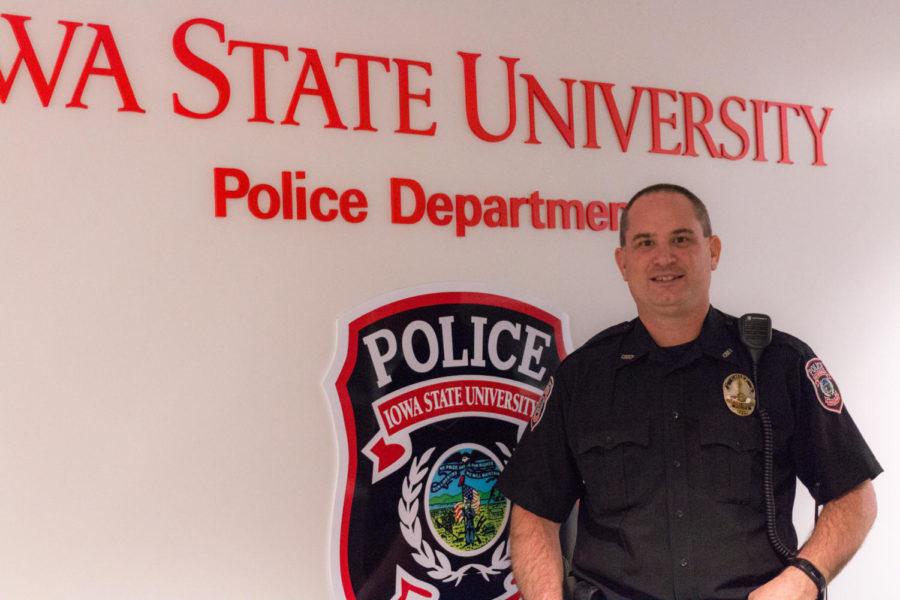- App Content
- App Content / News
- News
- News / Politics And Administration
- News / Politics And Administration / Campus
New police chief plans to make mental health a priority
Alec Giljohann/Iowa State Daily
Michael Newton, Iowa State University police chief
April 27, 2017
Nearly a month into the job, Iowa State Police Chief Michael Newton continues to adjust to a new campus.
With nearly a 100,000 citizen difference, Newton noticed several differences between the Iowa State and University of Wisconsin Madison communities.
Currently, he is meeting with community members, studying Iowa law, which varies slightly from that of Wisconsin, and looking forward to new plans.
In Wisconsin, Newton was the board president of the National Alliance on Mental Illness (NAMI). Looking into NAMI Iowa, Newton makes mental health a priority.
“One of my other strong areas that I want to be involved in here, mental health was really important to me of making sure that we have the right systems and processes in place to help students or faculty and staff with mental health concerns,” Newton said.
He said that he is excited to see that the student leadership has put an investment in mental health. Newton is waiting to get completely settled as chief before getting officially involved with NAMI Iowa.
“Over the years, law enforcement has sort of ebbed. We used to have a lot of social service agencies and the social service agencies that would assist with mental health issues and concerns,” Newton said.
Now, he feels that there has been an influx of mental health cases on college campuses causing more of a need. These cases have often ended in arrest and situations where Newton says mental health treatment would have been the better solution.
When it comes to training, he is satisfied with the extent of training the officers received, but he said that the department is understaffed, which is something he plans to work to improve over time.
The training he would like to implement would deal with mental health, specifically teaching officers how to de-escalate.
“It also teaches that it’s the illness, not the person. It helps them recognize that sometimes people who are in a mental health crisis act out and act differently,” Newton said.
Parts of the training also help the officers think from the perspective of the person bearing a mental illness. This will lead to a better understanding of what it is like to have a disorder like schizophrenia.
One part of the ISU police that he said was thriving was the community outreach. Currently, the officers are nearing the end of their spring campaign.
“Our outreach folks really have a good grasp on what’s popular with students and that excites me because I think all too often, sometimes in campus law enforcement, we’ll forget the reason we’re here is students,” Newton said.
He said that one of his goals is to engage all three sectors of a campus community – faculty, staff and students.
Through the numerous meetings that Newton has been a part of this past month, he said that a lot of the student feedback was that they wanted to see more of the campus law enforcement.
He’s not sure exactly what to make of this feedback or how to work to improve this. Newton is open to any feedback that the community has for the department.
“From my experience, I came from an organization that was really heavily steeped in community policing and, you know, we had residence hall liaisons there and other things, so i’m looking at how can we leverage some of that here,” Newton said.
Through this engaged community policing, Newton feels that it will lead to those they serve will go to them with things rather than them hearing about it after the fact.
Newton acknowledged that the Iowa State community already has a high opinion of their police department, but sees room for improvement.
“I don’t want the campus to just be supportive of us, I want the campus to advocate for us,” Newton said.
















